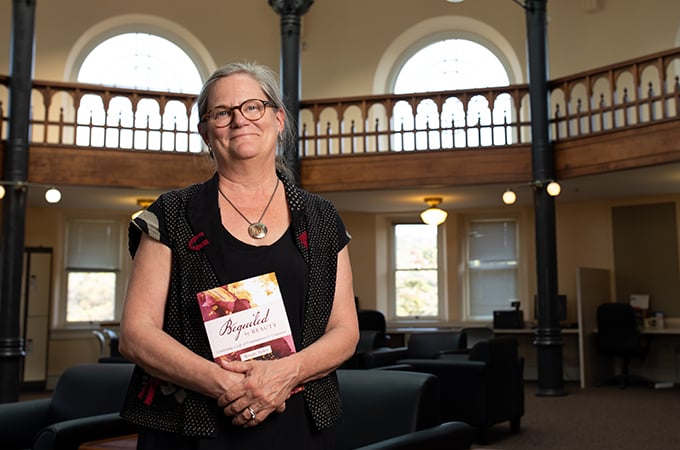Wendy Farley began her career as a philosophical theologian. In the last 25 years, she has also studied contemplative practice and theology in Christianity, Buddhism, and other religious traditions.
At San Francisco Theological Seminary, part of the U of R’s Graduate School of Theology, Farley uses her years of experience and expertise to teach courses on systematic theology and compassion and contemplation. In her work, she focuses on the contributions of marginalized voices and issues, including feminist, womanist, and queer theology, contemplative practice, and inter-religious dialogue. She is interested in the interdependence of interior transformation and social justice, which is a main theme in her latest book.
She has infused the volume, Beguiled by Beauty: Cultivating a Life of Contemplation and Compassion (Westminster John Knox Press, 2020), with practical advice for opening the door to compassion, empathy, contemplation, joyfulness, and finding beauty in a society rife with challenges and injustice.
“I felt like we are entering a really difficult and dangerous period of our history,” says Farley, the Rice Family Chair of Spirituality in the Graduate School of Theology, about conceiving this book. Dealing with issues such as climate change, political division, and street violence, she says, “makes it is very important to offer the resources for developing compassion for each other.”
That means a sense of justice and compassion for all beings—even those you might feel hostile toward, she says. “There’s a lot written on compassion, but I wanted to think about beauty as the doorway to compassion and empathy for people who are suffering and are experiencing difficulty. It’s a different way of nurturing our capacity for good.”
Contemplative practices, such as prayer and meditation, are mainstays in the Christian tradition but can seem difficult to engage now, in a hyper-stimulated age. But Farley claims they are more essential than ever because they awake us to the beauty of human relationships.
How does one put these exercises into practice? Exploring accessible avenues for contemplation “isn’t just sitting down and stilling your mind, which can be difficult for many people,” she says. Farley offers simple practices to connect to the divine source: “It’s working your mind to always put it in a place of positive attributes—in the place of the divine goodness—in all the different contexts of your life.”
Learn more about the Graduate School of Theology.






